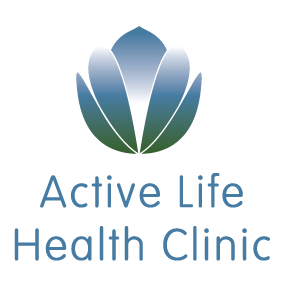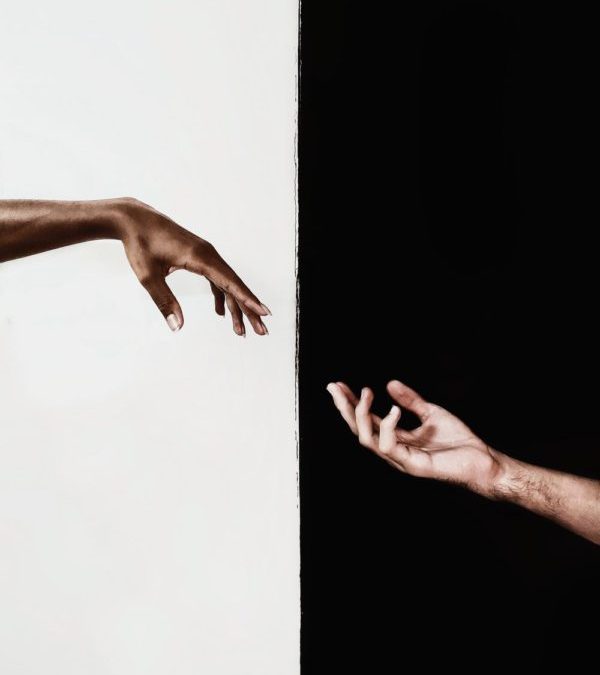 I know I normally write about health topics that are more obviously health topics, but this is about health too. We cannot be fully healthy as individuals if we are not healthy as a society…
I know I normally write about health topics that are more obviously health topics, but this is about health too. We cannot be fully healthy as individuals if we are not healthy as a society…
“I can’t breathe,” he said. While in the midst of a viral pandemic that affects the respiratory system, how is it that these words were spoken, not by someone suffering from COVID-19, but from someone being held by police? None of our hands are clean here. And we cannot socially distance ourselves from this.
Even as someone who is biracial, I cannot say I’ve ever experienced the level of racism that makes me fear this kind of violence. I’ve felt the sting of racism. As a kid, other children sang songs to my sister and me about slanted eyes. As a young adult, a boyfriend’s mom told me I would not be able to agree on how to raise her potential future grandchildren because I wouldn’t understand Canadian values. Throughout my life I’ve been asked, “What are you?,” “Where are you from?,” and all kinds of variations of this to determine my heritage, and though I may occasionally joke back, “human” or “hungry” to the first question and “Earth” or “Dollard des Ormeaux” for the second one, I don’t mind these questions unless they are said with malintent.
But I know that my Japanese grandparents felt more than a sting. I know that many of my friends have felt more than a sting.
There is no place for racism. And we have to speak up when we see it. Especially those of us who have the privilege of living most of our lives in ignorance of it. Many of us are watching the protests in the U.S. and now in Canada. Some of us are sharing articles, images, and memes. Hopefully the vast majority are outraged, disgusted, and saddened by the shocking video of George Floyd having his neck kneeled on as he said he couldn’t breathe, as bystanders videoing it begged the officer to get off, and as George asked for his mother. This is not a first. This is not unprecedented! And to think it’s not here in Canada too, in all of our neighbourhoods is wishful thinking. Racism is here.
Racism is obvious when someone graffities or shouts out racial slurs. It’s also present when someone sees someone else of a different colour and crosses to the other side of the street, follows them around in the store to make sure they aren’t stealing, or tells them, “go back to your country.” It’s more subtle, but present in our institutions and systems, as well as in our assumptions about how someone drives, how hard someone works, and whether someone got that job because of diversity policies. And it comes to surface when we are stressed, fearful, and angry.
Had more people spoken up in 1942 in Canada when the Canadian government decided that Canadian citizens of Japanese descent were a danger and deserved to have their property taken away and sold while they were shipped off to internment camps in broken-down ghost towns, maybe it wouldn’t have happened. I’m sure not every Canadian agreed with it. But to not speak up against it was also allowing it to happen. To not be vocal in protest to it gave permission.
First they came for the Communists
And I did not speak out
Because I was not a Communist
Then they came for the Socialists
And I did not speak out
Because I was not a Socialist
Then they came for the trade unionists
And I did not speak out
Because I was not a trade unionist
Then they came for the Jews
And I did not speak out
Because I was not a Jew
Then they came for me
And there was no one left
To speak out for me— Pastor Martin Niemöller
I heard this quote in my listening to the audiobook, “Talking to Strangers” by Malcolm Gladwell. Basically, this book is about how we think we are good at reading strangers, but, in actuality, we are atrocious at it. The book starts and ends with the story of Sandra Bland (a Black woman), stopped for a minor traffic infraction that the officer actually caused (she didn’t signal that she was pulling over for him when he came up speeding behind her with lights and sirens going). It escalated and ended up with her in jail because he said he feared for his life. She is said to have committed suicide as a result of this. The officer was following police policy to pull people over for any minor infraction, make them uncomfortable, and see how they respond. It was a policy formed from a misinterpreted study about using traffic police to find illegal guns and drugs. Rather than focus on specific, targeted, high-crime areas, however, he stopped her in a rural area, not far from her alma mater university where she had just started a new job. I finished listening to this book shortly after George Floyd’s death.
We need to do better.
My last blog was about acceptance and change. I said that sometimes we need to just accept things and go with the flow. We have to accept that our lives have changed because of a virus. We can take action to protect ourselves and try to reduce our chances of having the same thing happen again, but for the virus’ impact itself…that we need to accept.
Racism is a world threat we do NOT need to accept. We can look at ourselves and check our own tendency for racism and wrong assumptions. We NEED to speak up when we see injustice. We need to reform policies. If you do not, you may some day find yourself on the wrong side, with no one there to stand up for you.
Niemöller, the person quoted above, was born in Germany and was initially a supporter of the Third Reich. But when he realized his phone was being tapped by the Gestapo and that the Pastors Emergency League, which he had helped found, was under state surveillance, he would then turn to oppose the Nazi government. Thus his quote. In his book (published in English as Of Hope and Guilt), he wrote, “Thus, whenever I chance to meet a Jew known to me before, then, as a Christian, I cannot but tell him: ‘Dear Friend, I stand in front of you, but we can not get together, for there is guilt between us. I have sinned and my people has sinned against thy people and against thyself.'”
His guilt is real and justified. He was there.
It is real and justified as well for many of us who were not actual perpetrators. It may even be historical, something that happened before we were born. When I lived in Japan, I went to visit the Peace Museum in Hiroshima with a group of young American Marines. They were boisterous, loud, and posturing before we entered the museum. But as soon as we crossed the threshold, suddenly they were quiet. Some of them left immediately. They were uncomfortable. Others continued forth with me. They were clearly feeling uneasy, but they looked, read, and learned. Some may even have cried a tear, though they would not have let anyone else see that. I cried. I’ve been through that museum multiple times. It’s tough to see, but it is fair, unbiased, and unabashed. Those boys were moved. And I think it was important that they see that, feel that. It may cause them to reflect at a vital moment.
The current situation makes us squirm and so we instead focus on the rioters, calling them out for their wrongs. I too believe they are wrong to cause damage and violence. But we cannot forget that there are many peaceful protests. And we cannot forget that there is so much anger because of what has happened time and again–big events that are shown on the news and everyday events that individuals experience regularly.
So, we should witness it. Be uncomfortable. Do more. Do better. And support those who are hurt.
Lastly, if you do go out to join a protest, keep in mind that even if you are masked while you are in close proximity to others, shouting and sweating, you are increasing your risk of exposing yourself and others you spend time around to COVID-19 infection. The infection numbers are likely to show a huge spike in a couple of weeks, adding further injury to the insult and injury already sustained.

